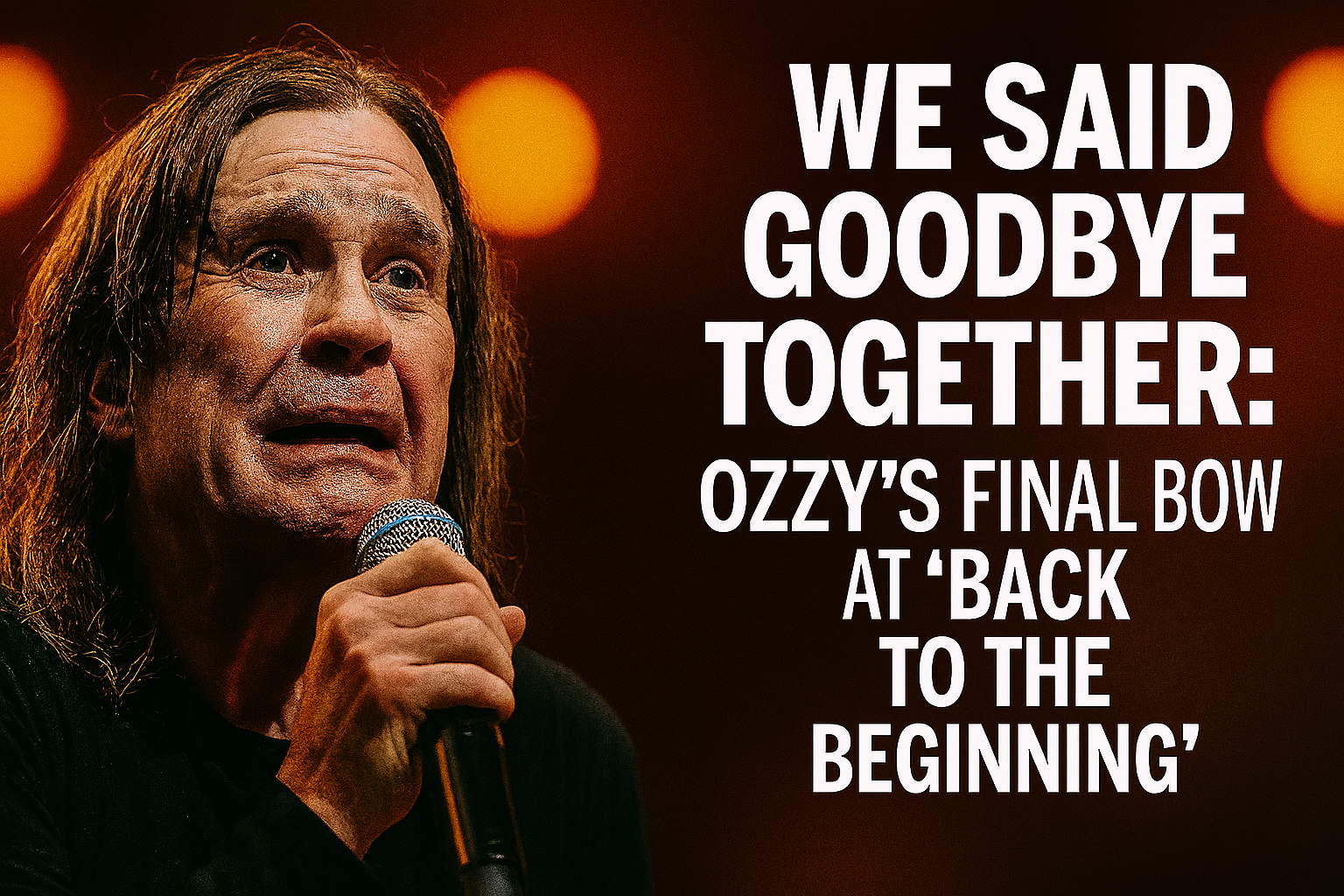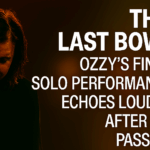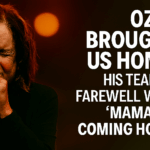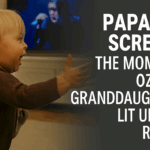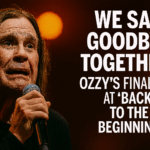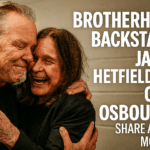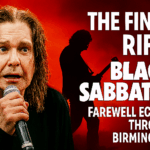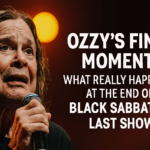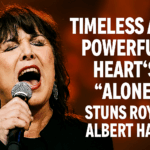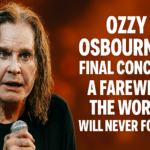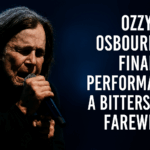Black Sabbath’s “Back to the Beginning” wasn’t just a farewell concert—it was a collective goodbye, a love letter to the music that shaped generations. Ozzy Osbourne’s final bow felt like the end of an era, but also the beginning of something eternal.
On the night of July 5, 2025, fans gathered at Villa Park in Birmingham to witness what many thought would never happen: the final live performance of Black Sabbath, the band that birthed heavy metal. The concert, aptly titled Back to the Beginning, reunited the original lineup and brought fans full circle—back to the city where it all began, and back to the sound that changed lives.
Ozzy Osbourne, seated like a weary monarch on a throne in the center of the stage, radiated both exhaustion and affection. His presence alone was enough to stir emotion, but it was his words—“I fcking love you”*—spoken directly to the crowd, that turned the night into something transcendent. In that moment, it wasn’t just a concert. It was a shared goodbye, a communal heartbeat echoing through decades of riffs, rebellion, and resilience.
The music hit differently that night. “War Pigs,” “Iron Man,” “N.I.B.,” and especially “Paranoid” weren’t just songs—they were memories. As the opening chords of “Paranoid” rang out, tears welled in the eyes of thousands. It wasn’t sadness alone—it was gratitude. That song, once a rebellious anthem, had become a symbol of loyalty, of love that refuses to fade.
Fans described the sound as “rough caresses, electric hugs.” The guitars roared, the drums thundered, and Ozzy’s voice—though weathered—carried the weight of every year, every tour, every fan who ever screamed his name. It was a sonic embrace, a final reminder that music can be romantic, even when it’s loud and chaotic.
The emotional depth of the night was amplified by the setting. Birmingham wasn’t just a location—it was sacred ground. The band’s return to their hometown added layers of meaning to every note. It was a homecoming, a reckoning, and a celebration all at once.
Ozzy’s health struggles were no secret. Diagnosed with Parkinson’s disease, he had fought hard to make this final performance happen. His seated posture wasn’t weakness—it was defiance. He showed up, gave everything, and said goodbye on his own terms. That act alone was heroic.
The crowd responded with unwavering love. They didn’t just cheer—they cried, they sang, they held each other. It was a collective act of remembrance, a living tribute to the band that taught them how to feel deeply, loudly, and unapologetically.
And when the lights dimmed and the final notes faded, something remarkable happened. The end didn’t feel like an ending. It felt like a transformation. As one fan put it, “The beginning is inside us now.” Sabbath may have left the stage, but their music lives on—in every riff, every lyric, every echo.
“Back to the Beginning” was more than a concert. It was a promise. A vow to carry the spirit of Sabbath forward, to love every note the way you love a person—with loyalty, with anger, with soul.
